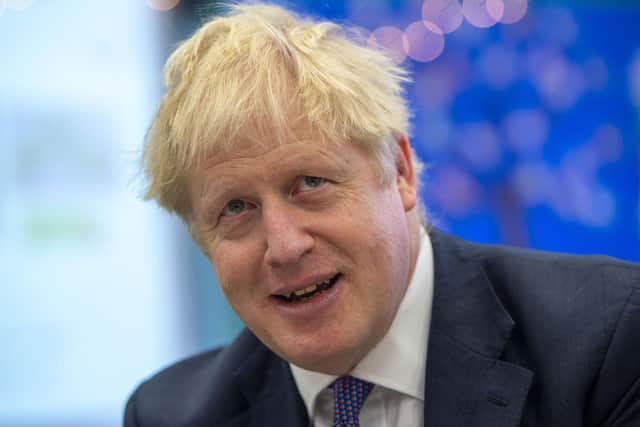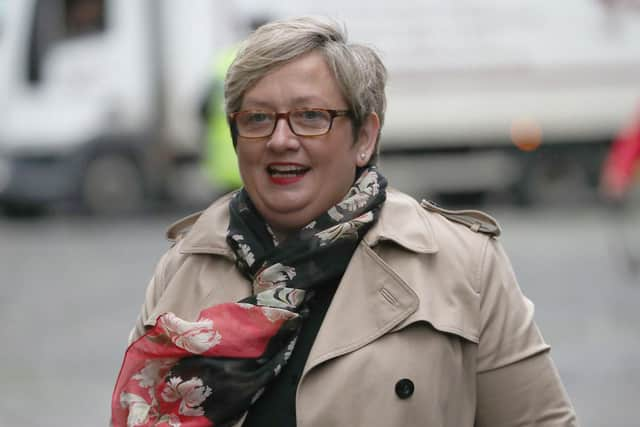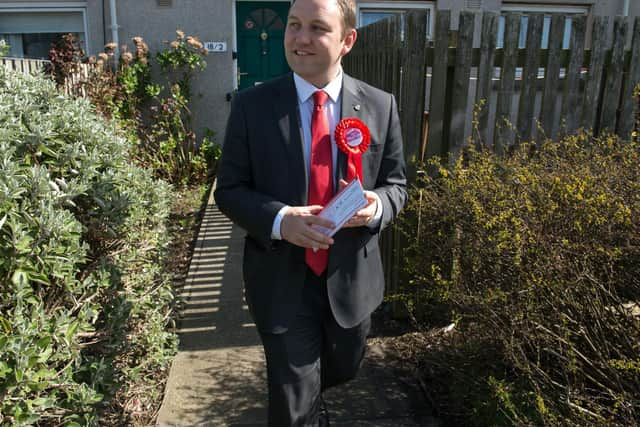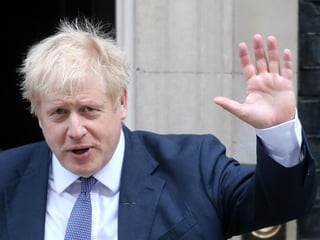December 2019 general election: These are the Edinburgh and Lothian battlegrounds for Christmas election


PARTY activists across the Capital are gearing up for a general election in six weeks’ time after MPs backed Boris Johnson’s plans for polling day on December 12.
The SNP currently hold five of the nine seats in Edinburgh and the Lothians while Labour have three and the Lib Dems one.
Advertisement
Hide AdAdvertisement
Hide AdAll the sitting MPs are seeking re-election but several of the contests promise a close fight.


The SNP, Labour and the Lib Dems have selected most of their candidates. The Conservatives are still finalising selections. And the Greens are to field candidates in all five city constituencies.
The most marginal seat in the region is Midlothian, where Labour’s Danielle Rowley had a majority of 885 when she won the seat from the SNP in 2017. The smallest majority in the Capital is Scottish Nationalist Joanna Cherry’s 1097 in Edinburgh South West.
Most of the SNP-held seats in the area saw their majorities fall at the last election - almost inevitable after the high point of the 2015 SNP landslide which was the first election after the independence referendum. But the Nationalists now have a clear lead in the polls, suggesting they are poised for another strong performance this time.


Edinburgh North was won by
Advertisement
Hide AdAdvertisement
Hide AdDeidre Brock for the SNP with a majority of 5597. But last time her majority fell to 1625 and Ms Brock’s share of the vote fell from 41 per cent to 34 per cent - one of the lowest winning vote shares in the country. Labour’s vote share remained almost exactly the same at just over 31 per cent, but the Tories’ leapt from 16 per cent to 27 per cent.
Labour’s Gordon Munro will be making a determined effort to take back one of the party’s traditional strongholds. And the Tories are expected to field Iain McGill, who has fought the seat several times before.
The SNP’s Tommy Sheppard stormed to victory in Edinburgh East in 2015 with almost half the total votes and a majority of 9106. That fell back in 2015, but Mr Sheppard still took 42.5 per cent of the votes and won by a margin of 3425.


Former MP Sheila Gilmore, who held the seat from 2010 to 2015 is bidding to win it back for Labour.
Advertisement
Hide AdAdvertisement
Hide AdHannah Bardell in Livingston and Martyn Day in Linlithgow are defending SNP majorities of 3878 and 2919.
Edinburgh South is the only Labour-held constituency in the Capital but also looks like the city’s safest seat.
Mr Murray was the only Scottish Labour MP to hold his seat when the SNP swept the board in 2015. He has been an outspoken critic of Labour leader Jeremy Corbyn and a strong advocate of remaining in the EU. Last week he survived an attempt by the Unite union to force a full reselection battle.
Mr Murray says he is happy to face the voters and will stand on his local record. But he is disappointed the election is coming before a fresh referendum on Brexit.
Advertisement
Hide AdAdvertisement
Hide AdHe said: “We’ve just given Boris Johnson the Brexit election he has always craved. What we needed to do first, in the national interest, was to resolve Brexit and then go to the country. If the Prime Minister wants to ask the public a question on Brexit, he should ask them a question on Brexit.”
And he attacked the SNP and the Lib Dems, claiming they had been playing with fire when they proposed a December 9 election. “Rather than dousing the fire they threw fuel on it. They started this process by letting the brake off at the top of the hill by playing political games. It spiralled out of control and now they’ve given Boris Johnson what he wants.”
But the SNP’s Joanna Cherry defended going for an election. She said: “I have been at the forefront of cross-party campaigning to hold a second EU referendum and I remain committed to putting any final deal before the people with the option to remain.
“Scotland voted overwhelmingly to remain in the EU and throughout this process the views of Scotland’s people and parliament have been ignored.
Advertisement
Hide AdAdvertisement
Hide Ad“However, it has become increasingly clear that we must have a change of government before that vote can happen.”
And Liberal Democrat Christine Jardine dismissed Mr Murray’s attack as “nonsense”. She said the Lib Dems had consistently backed a referendum but Labour had “jumped on and off the bandwagon”.
The SNP has chosen Sarah Masson, a theatre director and aide to Nationalist MSP Gordon MacDonald, to try to win the seat back.
It will be a battle between two parties which are on the same side over Brexit, but take opposite views on independence.
Advertisement
Hide AdAdvertisement
Hide AdMs Masson said: “I’m really looking forward to fighting a positive campaign based on Scotland remaining in the EU, and our bright future as an independent nation.”
Although Boris Johnson wants the election to resolve the Brexit issue, the Tories in Scotland are expected to focus just as much on their anti-independence message, which succeeded in winning them extra seats when Ruth Davidson was their leader.
The sudden election poses problems for council officials in charge or organising elections. They must now check the availability of schools and local halls to serve as polling stations as well as finding a venue where they can hold the election count.
This will be the second unexpected trip to the polls for voters this year. The UK was not scheduled to take part in the European parliamentary elections in the UK back in May, but had to after Theresa May failed to get her deal through Westminster. And it comes two and a half years after Mrs May’s snap election in May 2017, which meant the next election was not due till 2022.
